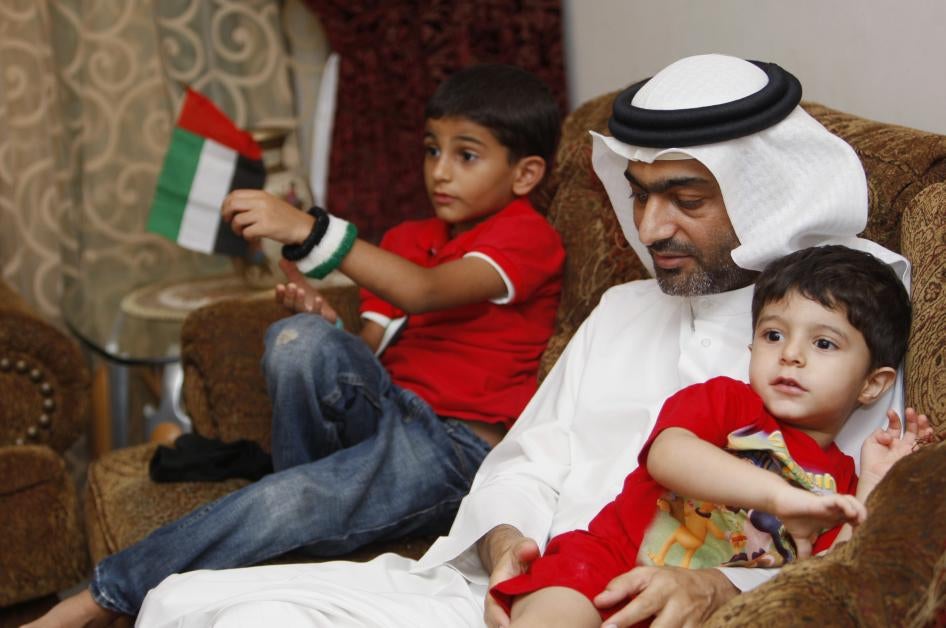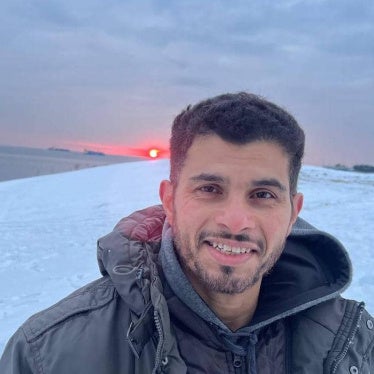(Beirut) – Allies of the United Arab Emirates, including the United States, United Kingdom, and European Union member states, should break their silence on the unfair mass trial of at least 84 political dissidents and human rights defenders, Human Rights Watch said today. They should send observers to a session on July 10, 2024, at which a verdict is to be delivered.
In December 2023, while hosting the United Nations Climate Change Conference (COP28), Emirati authorities brought charges against at least 84 defendants, the second largest trial in the UAE’s history, in retaliation for forming an independent advocacy group in 2010. The trial has been marred by myriad fair trial and due process violations, including allegations of ill-treatment that amount to torture, judges directing witness testimony, violations of the principle of double jeopardy, and hearings shrouded in secrecy.
“The US, UK, the EU, and other allies of the UAE should be standing up for the 84 brave Emiratis who are facing life sentences simply for expressing their political beliefs and defending human rights,” said Joey Shea, United Arab Emirates researcher at Human Rights Watch. “UAE allies should urge the immediate and unconditional release of these human rights defenders, meet with their families, send trial monitors, and publicly condemn the unfair trial.”
In a statement released January 6, Emirati authorities accused the 84 defendants of “establishing and managing a clandestine terrorist organization in the UAE known as the ‘Justice and Dignity Committee.’” The charges appear to come from the UAE’s abusive 2014 counterterrorism law, which sets out punishments of up to life in prison and even death for anyone who sets up, organizes, or runs such an organization. On May 10, the Emirates News Agency (WAM), the UAE’s official government news agency, announced that the verdict in the case would be released on July 10.
Human Rights Watch has urged governments to send monitors to observe the trial’s hearings, which the UAE claims are open to the public. No embassy in the UAE has sent such monitors to Human Rights Watch’s knowledge. Human Rights Watch has also requested that governments condemn due process violations and call for the immediate and unconditional release of the defendants. There have been no public statements from UAE allies calling for their release or expressing concern over the trial’s proceedings, though many of those same governments regularly claim that human rights are an important part of their foreign policy.
Many of the 84 defendants have been kept in incommunicado solitary confinement for at least a year and have reported abusive detention conditions, including physical assaults, lack of access to medical care and required medicines, incessant loud music, and forced nudity.
At least 60 of the defendants were already convicted in 2013 for their involvement with the Justice and Dignity Committee, according to the Emirates Detainees Advocacy Center (EDAC). This raises concerns that Emirati authorities are violating the principle of double jeopardy, which prohibits trying people twice for the same offense after they had received a final verdict.
While a January statement from WAM claimed the case is “public,” Emirati authorities have severely restricted access to the hearings, even for family members, and have kept secret basic details of the case, including the names of all the defendants.
Emirati authorities have prevented defendants’ lawyers from freely accessing case files and court documents. Lawyers have apparently not obtained physical or electronic copies of the court documents, relatives said, and are only able to view the documents on a screen in a secure room under the supervision of security officers. Informed sources said that the lawyers are not allowed to take photos of the documents and are only permitted to take handwritten notes.
“This is the second largest unfair mass trial of political dissidents and human rights defenders in the UAE’s history and the international community is failing to flag any concern,” Shea said. “Emirati authorities have long used their country’s economic and security relationships to prevent criticism of its rights record, but rarely, if ever, has the silence from its allies been so deafening.”









